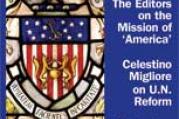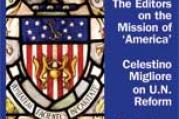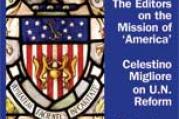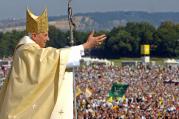Click here if you don’t see subscription options








Challenging Times
In his article Is This Transparency? (5/16), Russell Shaw asks whether the United States Conference of Catholic Bishops is operating in a public and transparent manner. He suggests the answer may be no. Unfortunately, I think the answer is a definite yes.
Could it be possible that the secrecy of the American bishops is not really an effort to hold on to power, but rather an indication that they may very well have little or none in the first place? The danger of doing business in public is that people must take stands and give reasons for their positions. A plenary council or even a synod would have to address some of the serious problems facing the American churchfor example: the shortage of priests, the status of women, of divorced Catholics and of gay men and women in the church, and the role of Catholic politicians in a pluralistic society. The list could go on and on.
As Mr. Shaw indicates, however, according to canon law, plenary councils are held at the discretion of the pope, and their decisions are subject to papal approval. Can you imagine the leadership of the American church openly discussing these issues and taking stands knowing that their actions would undergo review by a higher authority with the possibility of a public rejection of their positions?
The situation, therefore, may be more transparent than we’d like. We know as lay Catholics that ecclesiastically we have no power. Now we have a pretty good idea that the leaders of the American church are powerless as well. Where are the courageous shepherds of the past: St. Ambrose of Milan, St. Cyprian of Carthage, St. Augustine of Hippo? These are challenging times for us all.
F. Philip Johnston

The zeal of your house consumes me (Ps 69:10)

